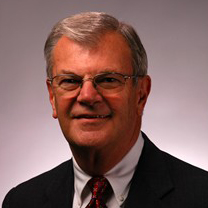An Overview of 2 Timothy
Theme:
Effective Church Leadership
Date:
Following his first Roman imprisonment and subsequent release, Paul ended up in the capital of the empire as a prisoner again (2 Tim. 2:9). He had already had his initial hearing before Caesar and was awaiting trial when he wrote this epistle (4:16). He believed that the Roman authorities would judge him guilty and execute him soon (4:6). Paul probably wrote 2 Timothy in the fall of A.D. 67. According to early church tradition Paul was executed shortly before Nero committed suicide in June of a.d. 68. Paul penned the last of his canonical epistles fairly near the time of his execution, though before the winter of A.D. 67–68.
Audience:
As with 1 Timothy, Paul wrote to his young emissary to encourage and instruct him in his ministry of oversight, probably in Ephesus (1:16–18; 4:14; see 1 Tim. 1:20; 2 Tim. 4:19). However, Paul knew that this letter would be read to all the believers and that it constituted instruction for Christians as a whole, not just Timothy.
Purpose:
Ever since Rome had burned in July of a.d. 64 and Nero had blamed the Christians, it had become dangerous to be a Christian and to have contact with leaders of the church such as Paul. Consequently many believers, including some of Paul's coworkers, had chosen to seek a much lower profile and become less aggressive in their ministries. Timothy faced the temptation to do the same. Paul wrote this epistle to urge him to remain faithful to his calling and loyal to his father in the faith.
Theological Emphasis:
Paul continued to deal with the subject of the church in this epistle, as he had in 1 Timothy, but he stressed particularly its leadership. This letter strongly emphasizes the importance of essential qualities that should mark church leaders, particularly Timothy.
Characteristics:
This is a very personal letter to a son in the faith. Paul believed he would die soon after writing it, so it is a sort of last will and testament. The apostle reviewed his life and ministry and stressed what is most important in the service of Jesus Christ as he anticipated the future condition of the church.
Excerpted from Nelson's New Testament Survey (formerly The New Testament Explorer), by Drs. Mark L. Bailey and Tom Constable (edited by Drs. Charles R. Swindoll and Roy B. Zuck).
About the Contributors

Thomas L. Constable
Thomas L. Constable is a former faculty member of DTS. Dr. Constable is the founder of Dallas Seminary’s Field Education department (1970) and the Center for Biblical Studies (1973), both of which he directed for many years before assuming other responsibilities. Today Dr. Constable maintains an active academic, pulpit supply, and conference-speaking ministry around the world. He has ministered in nearly three dozen countries and written commentaries on every book of the Bible. Dr. Constable also founded a church, pastored it for twelve years, and has served as one of its elders for over thirty years.

